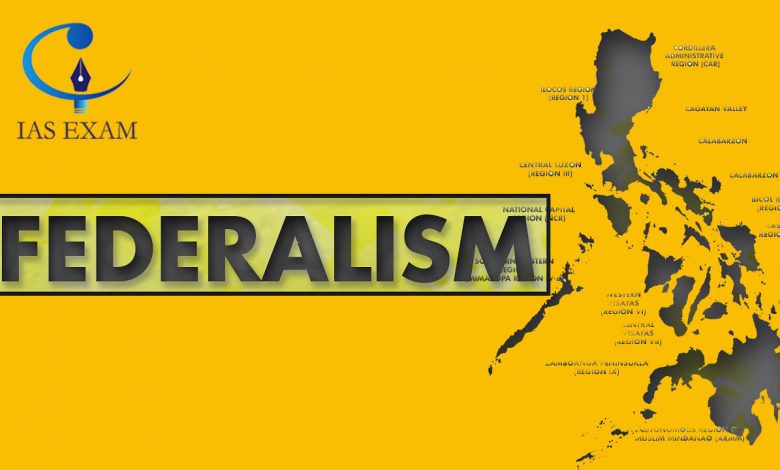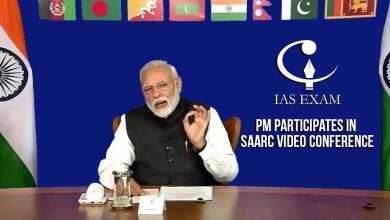Towards cooperative federalism

Not Every State-Union disagreement is the same and the Union must develop newer convention to foster development.
As of January 28, the Chief Ministers of at least 11 States have expressed their unwillingness to implement the National Register of Citizens (NRC). Two of these States, West Bengal and Kerala, have stayed all work on the National Population Register (NPR), which is the foundational register from which the NRC will be built. Furthermore, the Punjab Legislative Assembly passed a resolution seeking amendments to the NPR form to ensure that it does not seek data that may be used for verification of citizenship.
Human Cost Involved in conducting NRC
- The Citizenship (Registration of Citizens and Issue of National Identity Cards) Rules, 2003, provide for the process by which taluk level officers will prepare a National Register of Indian Citizens after filtering Indian citizens from the NPR — a register enumerating all residents in the country, by family.
- The process is arduous and ridden with wide discretion. It involves, after the enumeration, procedures for citizenship verification and scrutiny, objections and appeals. Officers may identify citizens and even whole families as “doubtful” without any just cause and demand evidence of their citizenship.
- The rules also permit any person to object to the inclusion of a name in the draft register. This is not a case of weaponising citizenship; it is weaponising citizens against one another.
- The human cost of such an exercise will be immeasurable.
Constitutional Governance as mentioned in the Constitution
- State governments have sufficient grounds to be concerned about the validity of the NPR. However, they are not empowered to hold the Union down to its obligations under the Constitution. The drafters of the Constitution were more anxious to give the Union Government the power to bring errant States in line with the Constitution.
- No equivalent power rests in the hands of States to hold the Union Government to the Constitution. When State governments raised concerns about the NPR, the Union insisted that States are under a constitutional duty to implement laws passed by Parliament.
- A duty to obey all laws passed by Parliament is premised on an unbridled deference to the Union Government to correctly understand and implement the Constitution while passing laws. However, nowhere in the Constitution is there any suggestion that the Union has the final say as to what is “constitutional”.
- Government is a human enterprise. It is wholly possible that a government may work the Constitution impermissibly, which Dr. B.R. Ambedkar reckoned with in saying “however good a Constitution may be, it is sure to turn out bad because those who are called to work it happen to be a bad lot”.
- All constitutional actors — State and Union legislators, State and Union governments and judges in the higher judiciary — are duty-bound to “bear true faith and allegiance to the Constitution of India” by way of their oath.
- The Constitution locates India’s identity as a “Union of States”. Therefore, States, and by extension their legislatures and governments, are indispensable to working the Constitution of India. After all, what sets Union Territories apart from States is the exclusive and distinct legislative and administrative competences of the States, to be acted on through their three organs of government. Thus, they cannot be reduced to mere administrative agencies entrusted with enforcing Parliament’s laws without any application of mind.
- Among the exclusively delineated areas of legislative and executive competence of States is the power and responsibility of public order and police. The NPR-NRC exercise is likely to place an undue burden on every single citizen of India.
- Compelling the most marginalized Indians to prove their citizenship under an arbitrary and obscure process is likely to cause widespread challenges to law and order.
- The Union, in compelling States to implement the NPR by ignoring the widespread dissent against it will be interfering with these exclusive powers of States. States, therefore, are entitled to more deference than mere reminders of their duty to obey Central laws.
Restricting Cooperation
- This is not to say that States have a “right to defy” the Union. The Constitution bars States from “impeding” the Union’s work and rightly requires them to comply with central laws. However, constitutional functionaries in States cannot be compelled to defy their oaths and enforce laws that are contrary to their good faith interpretation of the Constitution.
- In abiding by their oaths, States may require the Union to find a constitutional way to fulfill its purported objective, by withholding cooperation in a federal scheme. New institutional norms can play an important role on this front. India is not the first democracy that has seen States restrict cooperation to the federal government on contentious issues.
Amidst these situations and issues, there is a lesson for India. The Union government can include States in how decisions are made and enforced, or it can depend on archaic emergency provisions to enforce its will. Not every disagreement between States and the Union is the same, and the Union must develop newer conventions to foster cooperation.
SOURCE: The Hindu





.png)



